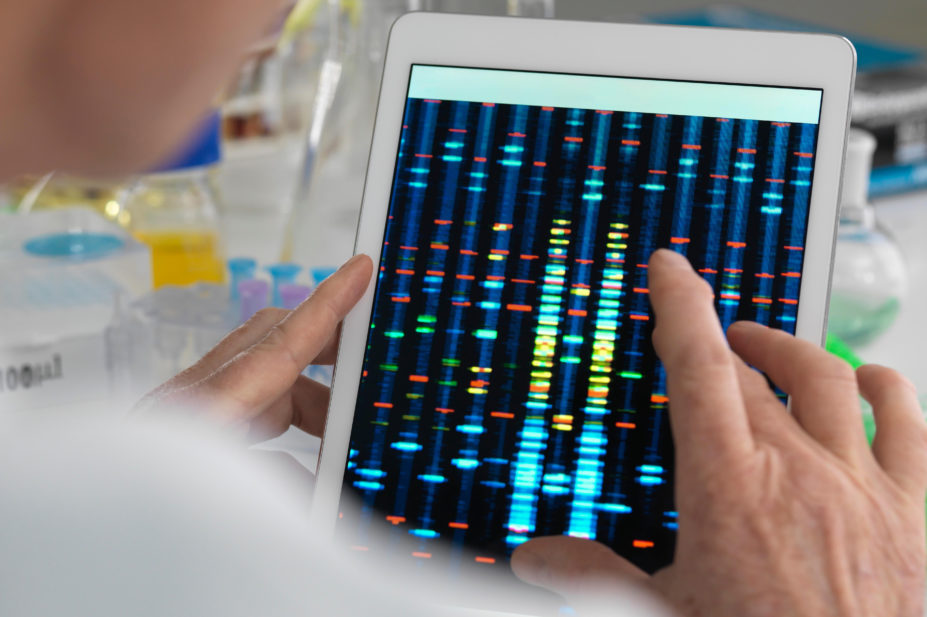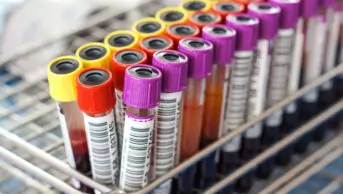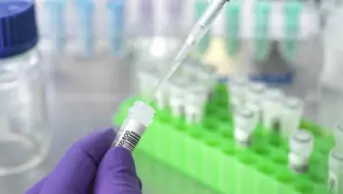
Science Photo Library / Alamy Stock Photo
A service to consult patients on genetic variations that affect their response to certain medicines should be developed within each integrated care system (ICS) and led by teams that include pharmacists, a report has recommended.
The report states that since most prescribing occurs in primary care, it is “important” that GPs and pharmacists are considered “an essential component” of the multidisciplinary pharmacogenomic service.
‘Personalised prescribing: using pharmacogenomics to improve patient outcomes’, published on 29 March 2022, was produced jointly by the Royal College of Physicians and British Pharmacological Society, with endorsement from the Royal Pharmaceutical Society (RPS).
It includes a series of recommendations to help deploy pharmacogenomic testing in GP surgeries, hospitals and clinics across the UK to ensure all patients have an equal chance of being prescribed a medicine at a dose that is likely to be safe and effective for them, with minimal side effects.
The report recommends that a pharmacogenomics consultation service should be developed within each ICS, led by a team comprising clinical pharmacologists, pharmacists and “other interested” specialists, and taking into account guidelines and prescribing information.
The report also states that, to “maximise the potential utility of pharmacogenomic testing”, test results need to be “appropriately embedded” into cross-boundary, cross-disciplinary joined-up care mechanisms “to enable test results to be available to physicians, pharmacists and other prescribers at the point of prescribing, irrespective of the particular community or hospital setting”.
In addition, it says that, to support the introduction of pharmacogenomics, specialist support should become available to patient-facing practitioners when required.
“This could take the form of a remote (virtual) consultation service provided to primary and secondary care providers at an ICS level through multidisciplinary teams, which include pharmacists and clinical pharmacologists suitably trained in pharmacogenomics,” the report reads.
According to a press release accompanying the report, genetic variations affecting how individuals may respond to a particular drug have been identified for more than 40 medicines.
Some pharmacogenomic tests are already available in the NHS; for example, testing is available for people with cancer being treated with fluoropyrimidine-based chemotherapies, such as 5-fluorouracil and/or capecitabine, to identify those who have a genetic variant that puts them at risk of toxicity.
However, for many medicines, including commonly prescribed medicines, such as painkillers, beta blockers and antidepressants, tests are not available in the NHS.
“A small number of pharmacogenomic tests are available in the NHS, but this needs to be expanded,” said Sir Munir Pirmohamed, David Weatherall Chair of Medicine at the University of Liverpool and chair of the report’s working party.
“The UK is a world leader in genomic medicine, and the implementation of a wider range of pharmacogenomic tests would further demonstrate UK leadership,” he added.
“In the 21st century, we need to move away from the paradigm of ‘one drug and one dose fits all’ to a more personalised approach, where patients are given the right drug at the right dose to improve the effectiveness and safety of medicines.”
Ravi Sharma, director for England at the RPS, said the “important” report highlighted the “pivotal role” that pharmacists play in the successful implementation of pharmacogenomics services across England, Scotland and Wales.
“We have seen huge progress across England with NHS Genomic Medicine Service Alliances set up that oversee and coordinate the embedding of genomics into mainstream clinical care in seven regions.
“Pharmacists have the knowledge, skills and abilities to provide the precision dosing and therapeutic drug monitoring that connects genomic testing with medicines optimisation, and so will play a central part in delivering the advances in personalised medicine that are set to revolutionise patient care.”
Sharma said that pharmacy teams had a “critical” role to play, particularly in primary care where most prescribing and dispensing takes place for patients.
“We want to see infrastructure established to create a pharmacogenomics service in every ICS in England, as recommended in the report, with pharmacists playing a critical leadership role in the multidisciplinary team embedded into clinical pathways across specialties to inform care for individual patients.
“Appropriate workforce planning for current and future generations of the pharmacy workforce is key to achieving this, so the full potential of providing pharmacogenomics care across settings can be realised.”
Read more: NHS Scotland tenders for £66m pharmacogenomics decision support service


